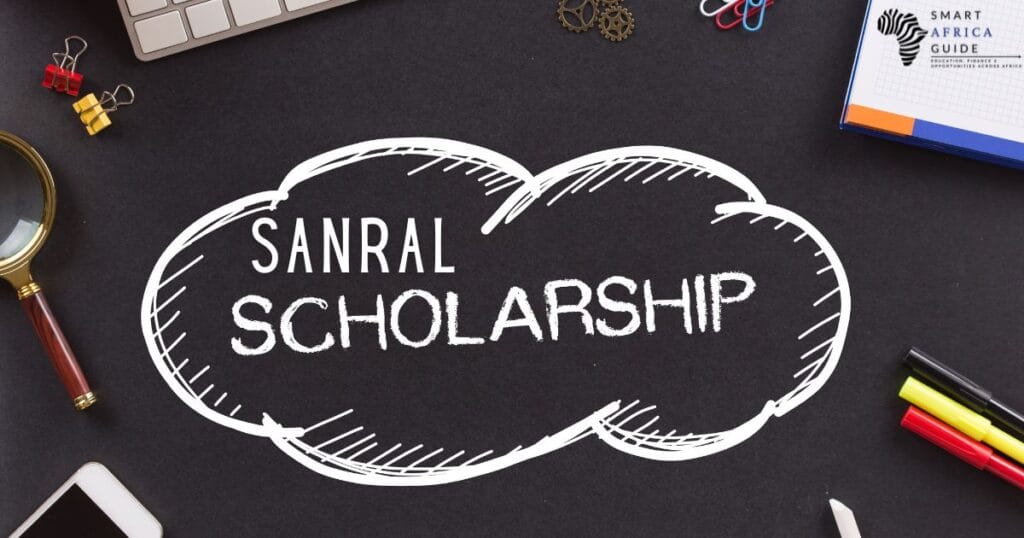Last updated on January 3, 2026
The Allan Gray Scholarship opens doors for talented South African learners who show leadership, curiosity, and a drive to create change from an early age.
Many students first wonder what a scholarship truly means before applying. You can read a simple guide on what a scholarship is to understand how these programmes work and why they exist.
The idea is simple — open good schools to children who might never reach them otherwise. It is not just about paying school fees; it is about guiding students who want to grow and do something useful with what they learn.
Table of Contents
Overview of the Allan Gray Scholarship Programme

You know how some learners do well but never get the same start as others? That is what this programme tries to fix. The Allan Gray Orbis Foundation built the scholarship for learners who show steady effort and curiosity.
It gives them space to learn in schools that guide, challenge, and expect responsibility, even when study conditions are not easy. It suits children who stay curious and responsible even when work or life feels hard.
“Live as if you were to die tomorrow. Learn as if you were to live forever.”
Mahatma Gandhi
The help goes beyond paying fees. Scholars get uniforms, books, and mentors who check in on them. They attend small camps where teamwork and leadership are taught through real tasks, not theory. Each part of the plan is there to help them grow into confident, thoughtful young people.
More about the process and partner schools is listed on the Foundation website: https://www.allangrayorbis.org/scholarship/
Step 1 – Understand the Allan Gray Orbis Foundation’s Vision
The Allan Gray Orbis Foundation was built on one idea — that leadership can be learned early. It finds young learners who think independently and want to make a difference. The Allan Gray Scholarship is part of that mission.
It gives children from ordinary homes a chance to study at schools that expect more from them. The Foundation doesn’t just want scholars who score well; it wants thinkers who ask questions, take responsibility, and show respect in daily life. That mindset is where leadership begins.
Step 2 – Learn What the Allan Gray Scholarship Programme Offers
The programme opens doors for learners who show promise but lack financial support. Those chosen attend leading high schools where they receive full tuition, uniforms, and books. They also join leadership camps and small mentoring groups that build teamwork and confidence.
Every scholar becomes part of a growing network guided by the Allan Gray Orbis Foundation. The aim is not quick success but long-term growth — to shape responsible citizens who bring new ideas into their communities.
Modern learning also depends on technology. See how digital platforms are changing study habits in Africa through e-learning in Kenya.
Step 3 – Who Can Apply: Understanding Allan Gray Eligibility Requirements
A lot of learners apply near the end of primary school. Grade 6 is the common year, just before they move up to high school. In some years, the Foundation also accepts a few Grade 7 pupils who meet the same conditions.
Applicants must be South African citizens. They should have steady results in English and Mathematics and show signs of responsibility and curiosity in class. The Foundation looks for children who try on their own, help others, and stay focused even when the work is difficult.
The financial background is checked to confirm that support goes to families who need it. Teachers often guide pupils during the process, making sure forms and reports are correct.
The goal is to find learners with both ability and character — young people who can learn well and lead others with respect.
Step 4 – Scholarship Benefits
Tuition
Learners who receive the Allan Gray Scholarship South Africa get full tuition at one of the Foundation’s partner schools. The support usually includes books, stationery, uniforms, and sometimes travel assistance.
Each learner studies without worrying about school expenses. Partner schools under the Allan Gray Foundation Scholarship High School group are selected for their focus on academic quality and discipline. The financial help allows learners to put energy into learning and personal growth rather than thinking about fees.
Mentorship
Each learner in the scholarship has an adult who follows their progress through the year. The mentor checks how schoolwork is going and helps when things feel heavy. Sometimes they talk about exams, sometimes about settling into boarding life.
The chats are plain and personal, not meetings with a script. With time, the learner finds little ways that help studying feel easier and school days less stressful.
Camps
When school closes, small camps are held for the scholars. The days are filled with group tasks, short talks, and outdoor work. Learners plan, share, and solve problems together. Nothing fancy—just practice that shows what teamwork really means.
Away from class, they learn to listen, speak up, and manage responsibility. Many say these moments changed how they see themselves as leaders.
Step 5 – Application Process and Key Dates

The Allan Gray Scholarship application begins with a short form from the Foundation. Some parents download it from the website; others get printed copies through partner schools. It asks for a few basics like the learner’s information, marks from school, and family details. Everything should be sent in on time so it’s reviewed properly.
After the form comes in, staff go over the pages and check that the learner’s information is complete. Learners who match the basic requirements are called for tests. The written tests look at reading, problem-solving, and how a learner understands information. Later, a few are chosen for short interviews at regional centres.
Applications usually open early in the year, around February. The review takes time, so it helps when families send forms early. Only learners who finish every step are considered for final selection.
Step 6 – Selection Process Explained
Tests
Learners who pass the first review are invited to write short tests. The papers look at reading, reasoning, and how the learner understands new ideas. These are not based on classroom notes; they measure how a learner thinks. The questions are kept simple so that effort and focus count more than memorized answers.
Interviews
After the test stage, some learners are called in to talk with the Foundation team. The meetings are not formal or strict. They feel more like a normal chat. During the chat, learners mention their studies and a few things they hope to do later on.
Questions often touch on problem-solving and teamwork. The assessors pay attention to the way each learner answers and how they carry themselves. Clear answers matter, but attitude and honesty count much more.
Camps
Learners who reach the last round attend a short camp. Activities there involve teamwork, discussions, and practical tasks. Staff members observe how learners cooperate and solve real problems together. These camps give the Foundation a clear picture of leadership and behaviour in real situations.
Step 7 – Renewal and Academic Requirements
Keeping the Allan Gray Scholarship depends on steady performance and good behaviour. Each year, the Foundation checks how every learner is doing at school.
Marks in main subjects like English and Mathematics must stay above the level agreed on when the scholarship began. Teachers and mentors also give feedback about discipline and effort in class.
If a learner struggles, support is given first. Mentors talk with the school and family to help the learner recover. The Foundation only reviews renewal after these steps are completed. Attendance at classes and Foundation events is important because it shows commitment.
Scholars are expected to take part in mentoring sessions and leadership activities. These are part of the learning process, not extras. When learners meet the goals and stay consistent, their scholarship continues without a break. Renewal each year confirms that progress and discipline are in proper order.
Conclusion
The Allan Gray Scholarship opens a path for young learners who want to study hard and lead with purpose. It showcases how education and guidance can change a learner’s direction early in life.
Those who qualify gain more than school funding; they gain support that shapes character. Learners who miss this round can still look into other international scholarships that offer similar growth and guidance.
Learners interested in other education support programmes can also explore the SANRAL Scholarship, which assists high school students with academic potential across South Africa.
FAQs
What grades qualify for the Allan Gray Scholarship?
The scholarship mainly looks at pupils in Grade 6. That is the year just before high school. Sometimes, a few learners in Grade 7 are also added when places are open.
The Foundation chooses children who show steady work in class and curiosity to learn more. It helps them move into high school already guided and supported.
How do I apply for the Allan Gray Scholarship?
You start by getting the form from the Allan Gray Orbis Foundation. It is on their websites and also shared through some schools. The form asks for school results, family income, and contact details. A parent or guardian helps fill it in. When everything is done, it should be sent before the closing date.
The Foundation team checks all forms and then reaches out to learners who qualify. Those learners later write short tests and attend interviews. Applying early keeps things simple and avoids missing steps.
Can university students apply?
No. The Allan Gray Scholarship is meant for learners entering high school. It supports students through their school years and prepares them for leadership.
University students who wish to join the Foundation later can apply for the Allan Gray Fellowship Programme, which is designed for tertiary education. The two programmes work separately but share the same leadership vision.
Is it renewable every year?
Yes, the scholarship is reviewed each year and renewed if the learner maintains good marks and discipline. Attendance at school and Foundation activities is part of the evaluation. Mentors and teachers also share progress updates.
If challenges arise, support is given before any decision is made. Renewal depends on consistent effort, not perfection, and scholars are encouraged to grow at their own pace.

Varsha Asrani is a lecturer and education writer with experience as Visiting Faculty at AUPP and ATMC College, and as a Lecturer with TalentEdge and UpGrad. She is the Founder of the Asrani Institute of Education and Counselling. Varsha specializes in scholarships, e-learning, and career guidance for African students and professionals, and regularly visits Africa to gather first-hand insights that shape her research and articles.




